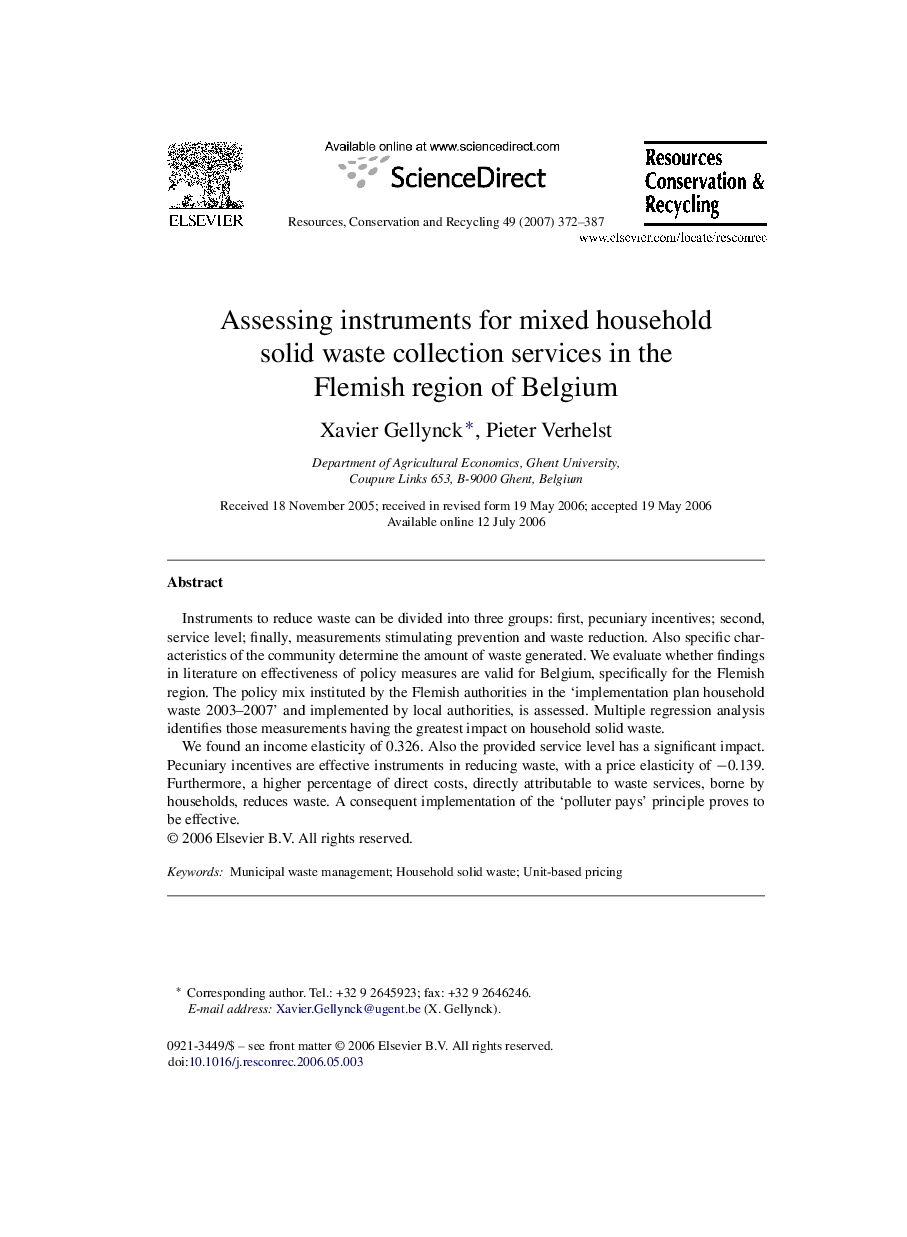| Article ID | Journal | Published Year | Pages | File Type |
|---|---|---|---|---|
| 1064123 | Resources, Conservation and Recycling | 2007 | 16 Pages |
Instruments to reduce waste can be divided into three groups: first, pecuniary incentives; second, service level; finally, measurements stimulating prevention and waste reduction. Also specific characteristics of the community determine the amount of waste generated. We evaluate whether findings in literature on effectiveness of policy measures are valid for Belgium, specifically for the Flemish region. The policy mix instituted by the Flemish authorities in the ‘implementation plan household waste 2003–2007’ and implemented by local authorities, is assessed. Multiple regression analysis identifies those measurements having the greatest impact on household solid waste.We found an income elasticity of 0.326. Also the provided service level has a significant impact. Pecuniary incentives are effective instruments in reducing waste, with a price elasticity of −0.139. Furthermore, a higher percentage of direct costs, directly attributable to waste services, borne by households, reduces waste. A consequent implementation of the ‘polluter pays’ principle proves to be effective.
